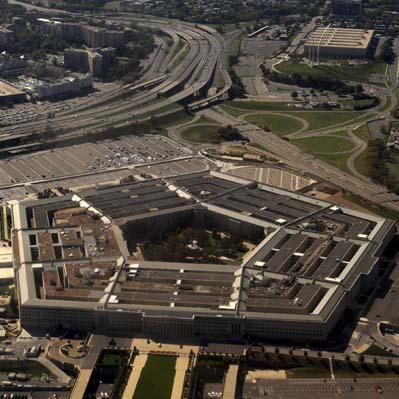Inspector General's Office Elaborates On Scope Of Latest JEDI Probe
Another investigation into alleged conflicts of interest around the Joint Enterprise Defense Infrastructure procurement process casts further doubt on the timeline for the military's massive cloud transformation initiative.

The Inspector General's office elaborated Tuesday on the scope of its recently launched investigation into the contentious Joint Enterprise Defense Infrastructure cloud computing contract and the nature of the team conducting the probe.
A multidisciplinary team at the IG's office will dig further into allegations of conflicts of interest, putting an indefinite pause on what was to be this month's delivery of the potentially massive contract to modernize military computing infrastructure to either Amazon Web Services or Microsoft.
The IG began investigating the JEDI award in June. It was referred to that watchdog's office after a previous internal investigation conducted directly by Department of Defense staff found the integrity of the procurement process was not impacted.
"Our review is ongoing and our team is making substantial progress," said the Defense Department’s IG spokesperson, Dwrena Allen, in a statement. "We recognize the importance and time-sensitive nature of the issues, and we intend to complete our review as expeditiously as possible."
[Related: Latest JEDI Cloud Doc Sheds Light On Channel Opportunity]
The investigation is evaluating complaints fielded through a Defense Department hotline and directly from members of Congress. Those complaints mirror allegations made by Oracle that conflicts tainted the process of drafting the criteria for the potentially $10 billion cloud computing contract in an effort to favor AWS.
Many congressional leaders have publicly voiced their concerns about the award. Oracle has aggressively lobbied the government to intervene, calling attention to several military officials with ties to Amazon, challenging the criteria vendors must meet to be eligible, and questioning the decision to go with a single provider for the "general-purpose" cloud at the center of the military's cloud transformation initiative.
Oracle declined comment on the latest statement from the IG's office. AWS did not immediately respond to a request for comment.
The IG's office will assess how the military developed its requirements, the process of soliciting bids, and whether any Pentagon officials had conflicts of interest that rose to the level of misconduct, Allen said.
The probe is staffed by "a multidisciplinary team" of auditors, investigators and attorneys, Allen said. Once the IG has written a report, the office "will consider publicly releasing the results" in line with its standard processes.
Last month, Judge Eric Bruggink released a detailed opinion that directly cited the previous investigation by the Defense Department in throwing out Oracle's lawsuit against the government, which AWS joined voluntarily as a defendant.
Bruggink, sitting on the U.S. Court of Federal Claims, said: "The facts on which Oracle rests its conflicts of interest allegations are certainly sufficient to raise eyebrows."
He noted the largely undisclosed ties between military officials and Amazon that prompted extensive investigations. But Contracting Officer Chanda Brooks "was thorough and even-handed," the judge concluded.
Oracle, in its lawsuit, named several Defense Department officials who had relationships to AWS.
Among them, Deap Ubhi, who served as JEDI project manager at the Defense Department; Anthony DeMartino, chief of staff for the Deputy Secretary of Defense; and Victor Gavin, a deputy assistant secretary of the Navy for C41 and Space Programs.
The contracting officer's team evaluated five people and found they had "no impact" on procurement, although some were dishonest with their superiors, Bruggink said.
Ubhi lied about his ties to AWS—particularly that Amazon had agreed to buy a startup he launched and then re-employ him. But the Defense Department's investigation already found Ubhi never shared non-public information with AWS and didn't have access to sensitive documents related to the request for proposal.
"It is unfortunate that the employees in question gave [Brooks] so much evidence to consider, making it easy for Oracle to cherry-pick from the vast amount of communications and isolate a few suggestive sound bites," Bruggink said.
The IG investigation had already been initiated before President Trump waded into the affair at a White House event several weeks ago.
And two weeks ago, a Defense Department spokesperson said new Defense Secretary Mark Esper has ordered another review, and no final decision would come down until it's completed.
That same spokesperson, Elissa Smith, previously characterized Oracle's allegations of conflicts of interest as "the subject of poorly informed and often manipulative speculation."
"DoD officials directly involved in the work of this procurement along with the senior leaders charged with making the critical decisions related to JEDI have always placed the interests of the warfighter first and have acted without bias, prejudice or self-interest," Smith said. "The same cannot be said of all parties to the debate over JEDI."
Pentagon CIO Dana Deasy told reporters Friday that should the review ordered by Defense Secretary Esper conclude before the IG's investigation, the various parties would have to meet and figure out if they would pause delivery of the award.